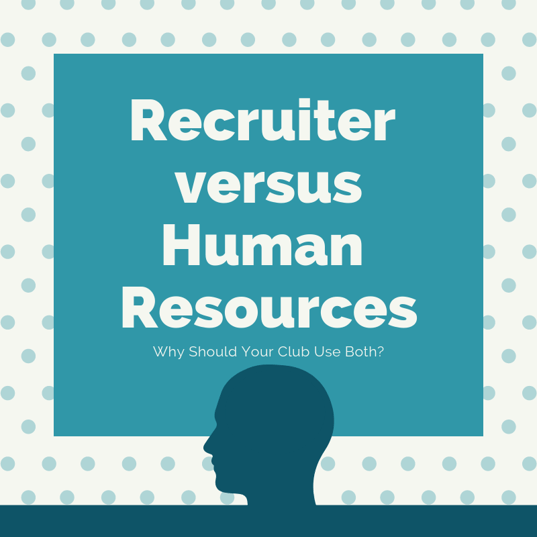Recently, Club and Resort Business published an article in which a club in Pennsylvania hired, and then fired a bookkeeper for embezzlement; only to find out that she had six months remaining of a seven-year probation for embezzling from a previous employer. You may be asking “how did the employer not know that their newest employee had a history of felonies?” Short answer: they probably didn’t ask, nor did they conduct a thorough background investigation. When industry unemployment is low, and club managers are wearing many different hats, if a candidate looks good on paper, and interviews well, a manager may not have the time or resources to conduct a thorough background check, and may be more concerned with “when can you start?” rather than “what skeletons do you have in your closet?”

A few months back, the discussion of why a club needs both a recruiter and an HR department sparked a lot of conversation around the proverbial “club industry water cooler", and one of the key reasons for employing both an HR department and a dedicated recruiter is simply because as easy as it is to dig up information on a person, it is also easy to hide information. Nothing predicts the future like previous behavior, and online research on a candidate simply doesn’t cut it. Managers in the role of hiring new talent should be spending time checking references; ideally over the phone as well as checking a future employee’s online presence.
Why is checking references over the phone most ideal? Simply put, talking on the phone allows hiring managers to detect any sort of enthusiasm; or lack thereof, in the tone of the reference’s voice. Phone calls also give the reference the chance to speak more openly and candidly about the applicant. Additionally, phoning a reference provides hiring managers the opportunity to ask questions on the fly based upon a response to a primary question. Written references don’t afford the option for a hiring manager to read between the lines based upon tone of voice, or ask leading follow up questions.

Checking references also serves as an opportunity to ensure a proper fit with personality and style of work. Most importantly, how a candidate gets along with others, how they manage stress, and changing circumstances. An applicant will tell you what you want to hear, but a reference will tell you how that person reacted in certain situations. We suggest asking all applicants to provide direct supervisor and at least one direct report for the last 4-5 jobs as references.
To sum it all up, reference checks; while seemingly cumbersome are the best decision hiring managers make in the hiring process. Reference checks ensure that applicants not only can accomplish essential tasks and responsibilities, but they also provide insight into an applicant’s personality, and what makes them tick. Checking references results in fewer bad hires, which saves hiring managers a significant amount of time and contributes to an organization’s bottom line.









